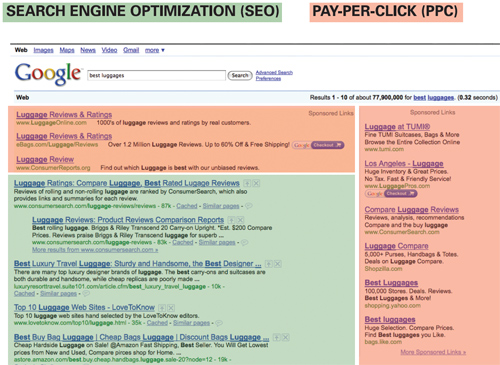Google has recently announced that it will make a profound switch when it comes to ecommerce marketing. Starting this fall, it will shift from Google Product Search to Google Shopping. While this will involve numerous changes, let’s discuss some of the most profound and how it will change things for both businesses and consumers.
The primary change is that businesses will be required to use product listing ads to bid on the positioning of their products. Rather than getting free clicks from organic search engine traffic, the business with the top bid will usually get the top position when selling products. Along with this, positioning for ecommerce product listings will depend upon relevance as well. As a result, this concept is somewhat similar to Google’s Adwords platform where individuals bid on ad placement.
While it’s apparent that Google is most likely doing this increase revenue, representatives have stated that this change will be beneficial for most consumers. Some of these benefits include an improved shopping experience where consumers will have access to products that are consistently updated. Basically, this new platform should encourage companies to keep product information fresh so they can remain competitive. It should also keep consumers abreast of the latest deals or promotions that a company is offering. Besides this, it should minimize the frustration that sometimes stems from ordering a product only to find out that it’s out of stock or unavailable.
In terms of the benefits for business owners, they are as follows. This new model for ecommerce product feeds should result in better traffic that is more highly targeted than it has been in the past. Since the search results that appear to consumers will be more up to date and accurate, businesses can expect to receive traffic that is more likely to make a purchase. Consequently, this should maximize the conversion rates for many businesses. Google has also stated that it will offer some perks to businesses that make the transition to this ecommerce marketing platform early.
For example, Google will offer a 10% discount to businesses that create Product Listing Ads by August 15 of this year. Also, businesses that currently use Google Product Search will be given $100 for their Adwords campaign if they sign up by this date. Even those these aren’t major advantages, they can prove helpful for many ecommerce companies. In addition, Google will offer businesses the option of signing up for the Google Trusted Stores program. This involves giving a special badge to quality stores where customers can look at ratings.
This brings us to the final question of what will this mean for large and small businesses. In all likelihood, this shift should be advantageous to larger business with more money to spend on an ecommerce marketing campaign. Since the company that can make the highest bid will usually get the best positioning, it could hurt smaller businesses with limited budgets. However, the full effect of this change in ecommerce datafeeds is still yet to be seen.







